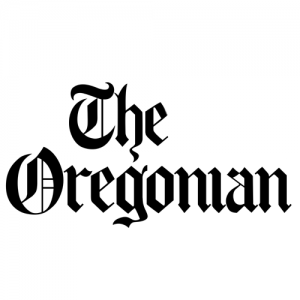
With Ballot Measure 90, Oregonians can challenge the exclusion of over one third of the state’s voters while, at the same time, fight rising partisanship in the Congress, and increasingly in our country. E pluribus unum, the concept of “Out of many, one,” is being made meaningless by the partisan divide.
The current closed system in Oregon confers a second-class status on more than 650,000 independent voters who are barred from first round voting. Measure 90 opens the election system, giving an equal shake for all voters. What’s more, it goes beyond the borders of Oregon.
A national nonpartisan movement is underway, and Oregon can make that movement both more visible and more sustainable. Measure 90 is a local initiative with national implications.
Nationally, patriotic progressive leaders have been fighting entrenched party bosses to adopt nonpartisan primaries, working to save open primaries where they are under attack, empowering black and Latino voters to use their votes independently, litigating the question of whether taxpayers should fund exclusionary primaries and pressing the good government and third party sectors to support the rights of independent voters. Progress is being made.
We are veterans of this movement and the political wars that have shaped it. Paul Johnson, the former mayor of Phoenix, led efforts to allow independents to vote in primaries in 1994, and to bring a nonpartisan open primary to Arizona in 2012. Successful on the former, falling short on the latter, we garnered 34 percent of the vote against extreme opposition from an amazing set of fellow travelers — including from the Koch brothers (who spent millions), a right-wing legislature known for legalizing discrimination against the gay community, the notoriously anti-immigrant Sheriff Joe Arpaio and, sadly, the League of Women Voters.
Jacqueline Salit, founder of IndependentVoting.org, which organizes independent voters in 40 states, brought the issue of nonpartisan elections to Michael Bloomberg during his New York City mayoral campaign in 2001 and partnered with him over 10 years in efforts to win passage of the reform there.
Facing overwhelming opposition from the parties, The New York Times, and the entire universe of good government groups, we saw the depths to which party stakeholders would go to control the nominating process. After intense dialogue — and eight years — the good government group Citizens Union came over to the side of nonpartisan open elections, hopefully a harbinger of a broader realignment. Meanwhile, Mike Bloomberg — to his credit — remains committed to the issue, including in Oregon.
From these and other experiences, we saw the importance of a bottom-up movement — fueled by new kinds of independent grassroots organizations. Movement-building — paired with the aggressive pursuit of state-by-state open primary initiatives — is what’s needed to transform America’s political culture.
As we write this piece, leaders of the Republican National Committee (RNC) are busy accusing independent voters of being untrustworthy; of “lack[ing] a brain, a heart.” Some are advocating for closed primaries in every state. Democratic Sen. Charles Schumer’s recent public support (in the recalcitrant New York Times!) for nonpartisan elections of the kind Measure 90 would enact, provoked outraged responses from fellow Democrats entrenched in the old system.
With 42 percent of the country now independent, a national movement for nonpartisan reform creates an alternative power base to the outdated and often undemocratic practices of traditional party politics. Even Schumer, a convert from the opposition, emphasizes the importance of a national movement.
Measure 90 is not only a crucial reform fix to an exclusionary system; it is an opportunity to strengthen an emerging coalition — one that weaves together the business community; independent voters and their organizations; forward-looking institutions of the good government movement; pro-democracy leaders of the third party movement; students; independents in communities of color; pro-reform philanthropists; as well as Democrats and Republicans who are themselves disenfranchised under the current system if they live in districts controlled by the party they don’t belong to or simply want their country to be fully democratic.
Nonpartisan political reform is obtainable. But it also must be sustainable. That’s why this emerging movement needs recognition and support. It provides the key to passing Measure 90 in Oregon and to giving the American people a tool for taking control of our democracy.